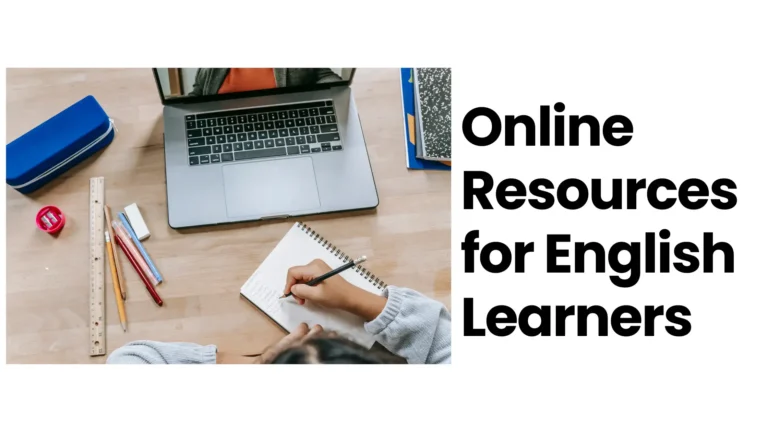How to Speak English Fluently: Easy Tips to Master English
Hello everyone,
Do you know what it means to be fluent in English?
Well, there are two parts to it.
First, you need to know the language well.
Second, you need to know how to use the language correctly.
When you’re fluent, you can use English comfortably. You can talk to native speakers without always needing help.
But being fluent isn’t just about knowing a lot of words.
It’s also about how you speak. If you have to stop or repeat a lot when you talk, it might not seem like you’re fluent.
And if you speak slowly or without any emotion, you won’t sound fluent either.
On the other hand, sounding fluent doesn’t mean you’re good at English.
To be truly fluent, you have to be good at both the language and how you speak it.
Some people think you need to know a certain number of words to be fluent, but that’s not true.
You can’t just study words and grammar. You also have to practice speaking.
So, make sure you work on both parts of fluency. They’re both really important!
Practice English Every Day
Studying English for just one hour every week usually doesn’t help you improve much.
If you want to get better at English quickly, it’s important to practice for a few minutes every day.
Immersion technique
One way to do this is through immersion, which means surrounding yourself with English as much as possible in your daily life.
You should try to make English a regular part of your routine, so that you’re always learning and practicing.
There are many fun and creative ways to create immersion, not just by studying from a book or a course.
For example, you can change your phone settings to English, watch English movies and listen to English songs, write in an English diary, or volunteer in a place where English is spoken.
The key is to immerse yourself in English as much as you can whenever you study.
Don’t be afraid to challenge yourself by listening to, reading, and even saying things in English that you think might be too difficult.
If you want to speak English fluently, you need to make it a part of your everyday life.
Watching authentic movies and videos can also help, as they expose you to the natural sounds of the language.
Brush up on basic grammar
English grammar can be really puzzling sometimes. You might notice certain patterns, but then there are other times when it just doesn’t make any sense at all.
Take the word “read” for example.
It’s spelled the same way but depending on whether you’re talking about the past or present, it’s pronounced differently. How confusing is that?
And why is it that “mice” is the plural of “mouse,” but “houses” is the plural of “house”?
It’s like English has its own set of rules that it likes to break.
It can be frustrating trying to figure out why things are the way they are.
But you know what? Sometimes, you just have to accept that English is a weird language.
Instead of trying to find a reason for everything, it’s better to just remember the exceptions and move on.
Explore more topics:
- How to Learn English at Home: 11 Simple Strategies
- How To Speak English Fluently: 10 Fluency Tips
- A Comprehensive Guide to Professional English
- How To Understand Native English Speakers
Observe more
Pay close attention when someone asks you a question in English and you’ll always give the perfect answer.
English questions are similar to mirrors.
For example, if the question is “Does he…?” the answer is “Yes, he does.”
If the question is “Can she…?” the answer is “Yes, she can.” And if the question is “Is it…?” the answer is “No, it isn’t.”
If you’re unsure how to answer a question, start by thinking about the words used in the question.
The person has already given you most of the words you need to form your answer.
Instead of just memorizing English grammar, try to find patterns like this one.
There are many simple tricks that can help you remember the right words more easily.
Learn whole sentences
Speaking English fluently means being able to communicate your thoughts, emotions, and concepts effectively.
The aim is to express yourself in complete English sentences, so why not acquire the language by learning whole sentences?
You’ll discover that English becomes more practical in your daily life if you focus on studying phrases rather than just individual words and verbs.
Begin by identifying the phrases you frequently use in your native language and then master how to express them in English.
Understand intonation, body language and gestures
True English fluency goes beyond just knowing vocabulary and grammar.
If you can understand intonation, body language, and gestures, you’ll truly appear and sound like a native speaker.
Intonation refers to the way a person’s voice rises and falls or changes in tone when they speak.
Body language involves how someone uses their own body to support or contradict what they mean.
Gestures are hand and body movements that complement what someone is saying.
Learning these three things isn’t easy because they come naturally to native speakers.
One way to learn is by observing how native English speakers interact with each other.
If it fits your budget, you can also hire an English teacher to study these aspects of the language.
Another option is to watch YouTube videos, as long as you can avoid getting distracted by other videos.
Speech-to-text habit
You can totally practice speaking English even when you’re texting your friends.
Instead of typing, just talk out your texts! First, you might need to change your settings to use speech-to-text.
Then, find the “speech” option on your keyboard.
Usually, you just have to tap a little microphone icon on the right side.
Start talking, and your words will magically appear on the screen.
Nobody can hear you, but you still get to practice. It’s a pretty cool deal, right?
Translation magic
But what if you mostly talk to your friends and family in your own language? Well, Microsoft Translator has a solution for that.
Check if your language is included in Microsoft’s Conversations feature.
If it is, you can speak in English and your words will automatically be translated into your own language as text.
Your chat buddy can speak in your language and their words will show up in English for you.
This way, you can practice speaking and reading English while having your usual conversations. It’s like a win-win situation!
Think in English
Think about all the things you can do that have a start, a middle, and an end.
For instance, when you cook dinner or assemble furniture, there are steps you follow.
Let’s try writing simple instructions in English.
To cook something, you can start by:
1. Peel the garlic.
2. Cut the garlic into small pieces.
3. Peel the onions.
4. Slice the onions.
Once you have your instructions, follow them and say out loud what you’re doing.
For example, you can say, “Now I’m cutting up the onions. Oops, my eyes are starting to water!”
A more challenging version is to keep an audio diary. Use your phone to record yourself describing your day or a specific experience from beginning to end.
This will help you learn words you use every day and make you more comfortable speaking fluently.
Join conversation online
If you want to get better at speaking English, it’s important to learn how to express yourself in English.
Sometimes it can be difficult to find the right words to say, even if you have ideas in your head.
One way to practice this is by joining conversations online.
You can try posting on social media, leaving comments on articles, or writing reviews. These are all great ways to practice expressing yourself in English.
Goodreads is a website where people share their thoughts about books they’ve read.
Writing about books and movies is a great way to practice sharing your opinions in English because they give you a lot to think about!
But if you don’t have a lot of time, there are simpler options too.
You can watch a short video on YouTube and leave a comment underneath it.
Or you can post short opinions on Twitter about anything. There are many ways to practice your English skills before you start speaking out loud!
Ask for feedback
If you want to get better at speaking, you can ask for feedback directly.
Sometimes it’s hard to do this in casual conversations, so it might be a good idea to find a language exchange partner.
They can tell you if any of your sentences sound weird or unnatural.
There are even apps that can help with this, like Go Correct where you can connect with English teachers.
HelloTalk also lets you chat or talk in English, and your partner will point out any mistakes you make.
If you’re studying on your own, you can practice your grammar and sentence structure by typing a simple message or paragraph.
Use Grammarly to check your grammar, then fix any mistakes you find. Finally, read everything out loud to practice speaking!
Podcasts and audiobooks
Podcasts and audiobooks are not only great for practicing English listening skills, but they can also improve your speaking abilities!
Many popular English podcasts provide transcripts that you can download.
One helpful technique is to read the transcript on your own, then listen to the podcast while reading out loud to match the speaker’s speed and accent.
This technique, called shadowing, can really enhance your intonation and pronunciation.
Make sure to choose a podcast that matches the type of English you are learning, such as American or British English, so you can practice imitating the accent too!
Know slang words and phrases
It’s important to concentrate on learning proper English, but it can also be useful to know some slang words and phrases.
This way, you can keep up with the latest trends and understand how people talk in modern English.
Slang is everywhere, especially on the internet, so you can’t really escape it.
Understanding slang, idioms, and casual expressions can actually help you become more fluent in real English.
It allows you to join in conversations that are happening right now.
Focus on pronunciation
If people can’t understand you, it might be hard for you to feel confident when speaking English.
But don’t worry, there’s no secret to improving your pronunciation.
All you need to do is learn the mechanics of how to move your mouth, use your lips, tongue, and throat, and then practice, practice, practice!
One way to improve is by watching native English speakers and paying attention not only to what they say, but also how they say it.
Notice the way their mouths move and try to imitate it.
It’s also good to know that certain sounds, like “th” and “r,” can be tricky for many English learners.
But remember, your native language can also influence your pronunciation.
So, it might be helpful to look up the most common pronunciation mistakes made by speakers of your native language.
This way, you can focus on those specific areas and work on improving them.
Keep practicing and you’ll become a confident English speaker in no time!
Listen to native English speakers
When you listen to someone who speaks English as their first language, it’s important to understand the meaning of the words they say. But there’s more to learn from listening than just that!
If you pay close attention, you’ll notice that sometimes English speakers pronounce vowels as “uh.”
This is called the schwa sound, and it’s the most common sound in English.
But many English learners don’t notice it, which can make them sound a little different from native speakers.
Another thing to keep in mind is that English words aren’t always pronounced separately.
Sometimes, one-word flows into another.
For example, “leave it” and “no idea” sound like there are no spaces between the words. Native speakers do this a lot!
Try to remember these things the next time you speak English, and you’ll start sounding more natural.
Focus on real-life English
When we talk about getting better at a language, we usually think about putting ourselves in situations where we have to use that language.
But the truth is, a big part of feeling confident and speaking fluently comes from actually talking. This method can help you do more of that.
Think about the books you love. Even if you don’t have any favorite books written in English, you can still find some translated into English.
For instance, the Harry Potter series is popular worldwide.
Choose an English book you enjoy, and try recording yourself reading it in English.
It might take some time, but it’s a fun and interesting way to practice your English pronunciation daily.
After you finish recording the book, you’ll have your own audiobook to listen to, which will help you improve your listening skills as well.
Be confident
Don’t think of yourself as someone who is learning English anymore, start thinking of yourself as someone who can speak English.
It’s a small change, but it will make you feel more confident and help you use the English you already know better.
It also means you should start thinking in English.
For example, if you want to say the word “apple” in English, you might first think of the word in your native language and then try to remember the English word.
Instead, try picturing an apple in your mind and then simply think of the English word “apple.”
True fluency happens when you stop mentally translating conversations.
This is the biggest step from learning English to becoming an English speaker!
Set clear goals
Fluency is a really high level to reach, and it will take a long time to get there, so “becoming fluent” can be a pretty unclear goal.
Having such a big, non-specific target won’t help you plan out your studies.
That’s why you should think of more specific and clear goals that can lead you to fluency.
On their own, they may seem like small steps, but when you put them all together, they’ll create a steady path in your journey to learn English.
Good goals should be specific and achievable.
When you set a goal, you should decide exactly what you want to learn and how long you want to spend learning it.
Here are some examples of good goals:
1. Learn 30 new English words in 30 days.
2. Have a conversation with a native English speaker this week.
3. Learn to conjugate five irregular verbs before your next tutoring lesson.
4. Perfect your pronunciation of 10 words over the weekend (then ask a native speaker to tell you how you did!).
Make sure the goals you set are reasonable and challenging enough to keep you motivated.
You want to achieve your goals without putting too much stress on yourself!
Identify your weak areas
English can be challenging, especially if it’s not your first language.
Identify your weak areas like grammar, pronunciation, or sentence structure, and work on them to get better.
Make sure you don’t neglect any part of the language when you’re studying.
Make mistakes
It can be hard to make a sentence with all the rules and words. But don’t worry about saying something wrong and just keep talking.
Even if you mess up, people will still understand what you mean most of the time.
And the more you talk, the better you’ll get and the words will come to you faster.
It’s okay to mess up sometimes, but it’s important to learn from those mistakes too!
If you notice that something didn’t go quite right during your English conversation, take a moment to remember it or write it down. Later on, you can study what exactly caused the problem.
Did you use the wrong words?
Did you say something incorrectly?
Maybe you used the wrong verb tense in your sentences?
Mistakes happen, but if you want to avoid making the same ones over and over again, you have to face them head-on and learn from them.
Revision
It’s super important to review what you learn, just like actually learning it! If you don’t review, you might forget a bunch of stuff you already learned.
This can make it harder for you to become fluent in English because the more advanced stuff is built on the basics. That’s why you should test yourself often.
There are lots of ways to review what you’ve learned. You can make your own quizzes, do translation exercises, or practice speaking with a partner.
You can also find online resources to help you review. It’s also a good idea to think about when to review.
Maybe right after you finish a new topic or after you finish a whole unit of study.
Or you could be super dedicated and review every time you study English!
When you review and test yourself, you can see how much you’ve improved. Seeing your progress can make you even more motivated to learn!
In English, there’s a saying: “Practice makes perfect.” This means that if you don’t use a skill, you might forget it.
You can apply this idea to help you remember new English words.
The key to remembering a new word is to use it as soon as possible so it sticks in your mind.
Practice saying the word in sentences multiple times during the week after you learn it, and you’ll have a better chance of remembering it.
Sometimes you might come across a word or phrase that doesn’t seem very useful to you right away.
It’s okay to not stress about memorizing that vocabulary immediately, especially if there are more important things to focus on learning.
Tip to remember English vocabulary
One way to remember English vocabulary well is by using spaced repetition.
This means reviewing words at longer intervals each time.
For instance, you can review a new word after a day, then a week, then two weeks, and so on.
By doing this, you can prevent forgetting new words. You can also use flashcard apps like Anki to make the reviewing process easier and more efficient.
Master basic grammar rules
Speaking English confidently means being able to use grammar correctly.
Even though you can learn grammar by listening and reading English a lot, it’s still helpful to study grammar on purpose.
Sometimes you have to memorize irregular verbs, which can be tricky when they change tenses.
There are other grammar topics that can confuse even native speakers sometimes, like subject-verb agreement.
For example, saying “he smile” instead of “he smiles” is incorrect.
Here are some other topics that can be confusing:
– Your vs. You’re
– I vs. Me
– Fewer vs. Less
Since it’s easy to forget new grammar rules, you can remember them better by doing quizzes and exercises.
Many grammar books, like “English Grammar in Use” and “Practical English Usage,” have exercises for you to practice.
There are also lots of online exercises and drills for almost every grammar topic.
Don’t stress about being perfect
It’s important to study grammar, but don’t stress about being perfect all the time.
The key to learning a language is finding a balance between studying and practicing.
Speaking English fluently is more about communication than perfect grammar— even native English speakers make mistakes!
Fluency comes from practicing writing, reading, listening, and speaking in real-life situations.
Keep practicing and you’ll pick up grammar rules as you go.
Focus on words you already know
When you write and speak your own sentences, focus on using the words you already know.
You might want to use more difficult, advanced English words to sound better, but you should stick to what you’re comfortable with and keep practicing what you already know.
It’s important to be “comfortable” with the English you use instead of just trying out new words because you want to.
If you do that, you might end up saying things that are incorrect or strange.
Of course, you do want to learn more words and improve your skills.
We suggest studying a new word for a little while in context (in sentences and videos) before using it in real conversations.
Practice with people
You can practice English with anyone who speaks the language, not just from books or teachers.
If someone asked you how to say something in your language, you’d probably be glad to help.
Most English speakers feel the same way and are happy to assist you.
If you have friends or colleagues who speak English, practice with them and don’t hesitate to ask questions or accept feedback.
Invest in English
Sometimes you need to “spend money to solve a problem.” This popular saying means that sometimes you need to invest in your future.
And since this future is all about speaking English, it might be a smart move to hire a personal language tutor.
It’s like having your own teacher for hours on end.
You can ask any question you want and get an answer right away, and you don’t have to stick to a textbook unless you want to.
Adapt to learning materials
Adapting learning materials to match your own skill level makes sure that you don’t feel overwhelmed by difficult stuff or get bored with easy things.
This way of learning helps you progress steadily and evenly, so you can build a strong base before moving on to harder ideas.
Using resources that are just right for your level also keeps you interested and excited about learning.
It makes the whole experience positive and enjoyable.
As you gradually encounter more challenging language, you can improve your understanding, learn new words, and become better at the language overall.
Final thoughts
No matter why you want to learn English, whether it’s for work, school, making friends, going on dates, or traveling, this is the thing that will keep you going!
If you remind yourself every day why you’re learning English, you’ll be more likely to keep going.
So write it down, put it on your bathroom mirror or fridge, and think about this reason every day. Trust me, it really works!
_______________________






